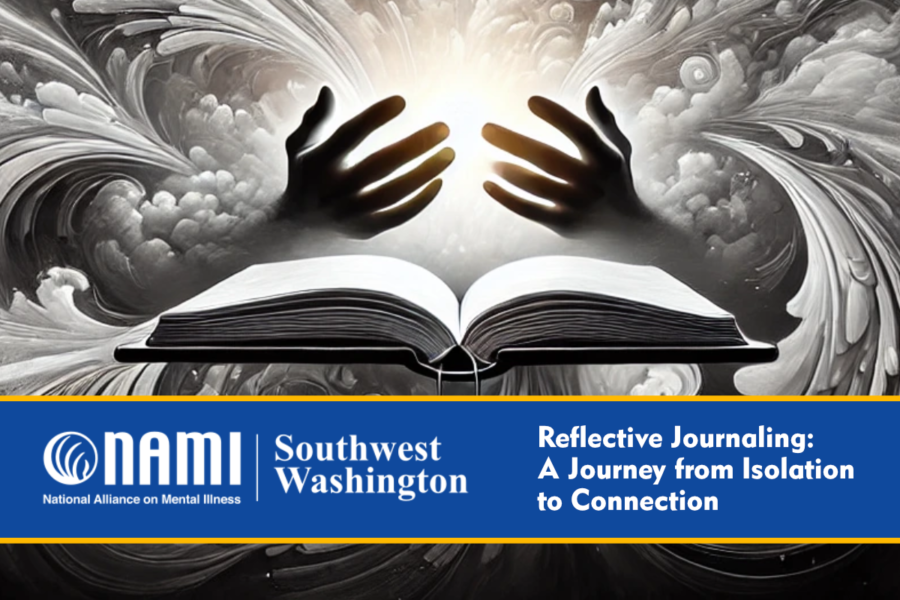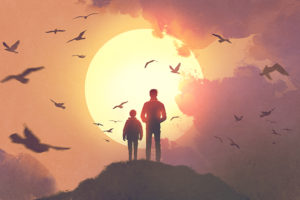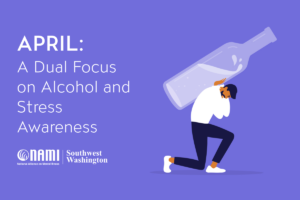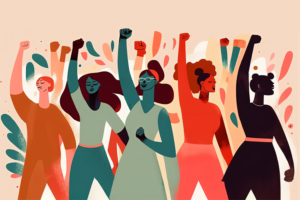By NAMI Southwest Washington
I remember the days when even the thought of socializing felt like a burden. It wasn’t that I disliked people—far from it. I had friends, family, and colleagues who I genuinely liked and cared about, but there was a heavy weight that I carried within me, making every interaction feel exhausting. I struggled to find the motivation to engage in everyday relationships, even with those I knew well. It was as if an invisible barrier stood between me and the world, one that I didn’t know how to break through.
My therapist noticed this pattern and, during one of our sessions, she gently asked if I had ever tried reflective journaling. At first, the idea of writing down my thoughts and feelings every day seemed daunting. What could it possibly change? But she explained that journaling is a powerful tool for self-awareness. By putting my inner world into words, I could create a tangible record of my experiences, one that could help me track patterns, identify triggers, and understand the root causes of my emotions and behaviors.
I decided to give it a try. Every night, I sat down with my journal, often unsure of what to write. At first, my entries were short and surface-level, but as the days passed, I found myself going deeper, exploring the emotions and thoughts I usually kept hidden. It was like peeling back the layers of an onion, each one revealing something new about myself.
"Reflective journaling has been more than just a tool for self-awareness—it has been a lifeline. It has allowed me to process difficult emotions in a safe space, to gain clarity on complex issues, and to develop a deeper understanding of myself."
Through this process, I began to notice recurring themes. I wrote about the overwhelming sense of isolation I felt, the mistrust that seemed to color all my relationships, and the fear that held me back from truly connecting with others. Slowly, the pieces started to come together, and a realization dawned on me: my present struggles were deeply rooted in my past.
As I delved into my memories, I uncovered childhood experiences that had left deep scars. I remembered the bullying I endured at school, the busy and inattentive parents who didn’t seem to notice my pain, and the damaged sibling relationships that made home life feel like a battlefield. These experiences had taught me that the world was not a safe place, that people were not to be trusted. And so, I had learned to protect myself the only way I knew how—by isolating myself.
But something remarkable happened as I continued to journal. Simply understanding the connection between my childhood trauma and my current patterns of behavior began to shift something within me. I no longer saw my isolation as a failure or a flaw, but as a coping mechanism that had helped me survive. This understanding brought with it a sense of compassion for myself that I had never felt before.
With this newfound self-awareness, I slowly started to heal. I found that I could challenge the mistrust that had kept me isolated for so long. I began to open up to the people in my life in small, meaningful ways. I allowed myself to be vulnerable, to ask for help when I needed it, and to show up for others in a way I never had before. And, to my surprise, the world didn’t fall apart when I did. In fact, it began to open up.
Reflective journaling has been more than just a tool for self-awareness—it has been a lifeline. It has allowed me to process difficult emotions in a safe space, to gain clarity on complex issues, and to develop a deeper understanding of myself. But perhaps most importantly, it has helped me to reconnect—with myself, with my past, and with the people who matter most in my life.
If you’re struggling, if you feel isolated or disconnected, I encourage you to give reflective journaling a try. It may not be easy, and it may take time, but the insights you gain and the healing you experience can be transformative. Sometimes, the answers we’re searching for are within us all along—we just need a way to find them.




